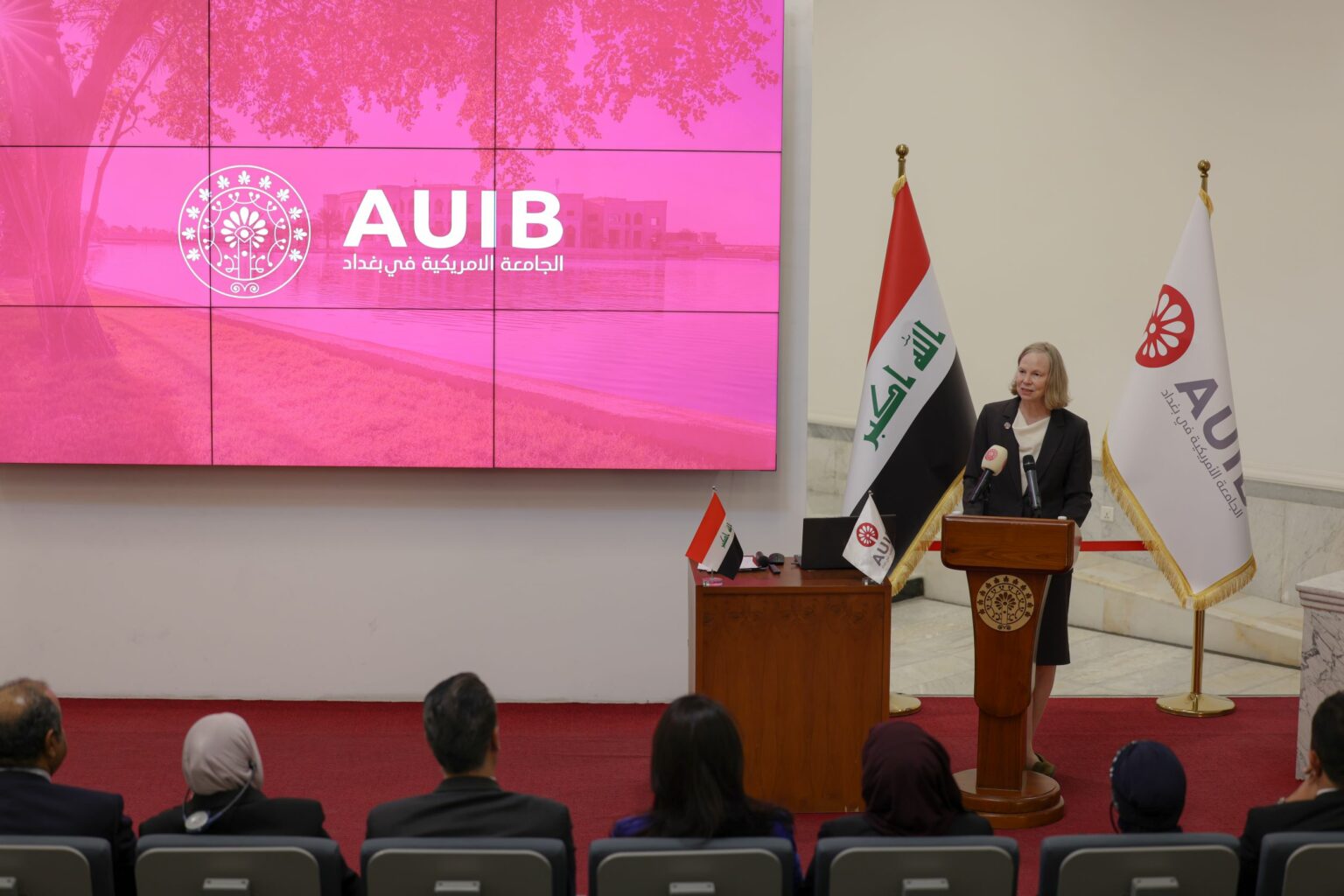The UNESCO Chair on Education for Health and Well-Being and the Center for Research and Development at the American University of Iraq-Baghdad (AUIB) organized a seminar on the occasion of World Intellectual Property Day, where officials from concerned governmental bodies and experts on relevant legal matters gave presentations on the subject to an audience of AUIB students, faculty, and staff.
Dr. Allison Webster-Giddings, Dean of AUIB’s College of Education and Human Development, stressed the importance of finding the right balance between incentivizing research and innovation via the enforcement of patents, trademarks, and other tools of safeguarding intellectual property rights, on the one hand, and on the other, ensuring that the people of Iraq have access to essential medicines, as an example of a relevant prime concern. While “innovation spurs the development of life-saving medicines,” the enforcement of intellectual property rights in a context such that of the Iraqi “strained” health system “can create barriers” to accessing vital technologies and products, further exacerbating “inequalities,” pointed out Dean Webster-Giddings.
Ms. Hind Ismail Khalil, Director of the National Center for Protection of Copyright at the Iraqi Ministry of Culture, expounded on the “effective role” of the Center in safeguarding “literary, cultural, and artistic (intellectual property) rights” of writers, artists, and creators of various kinds of cultural products, including audiovisual works, works of sculpture, (engineering, geometric, or architectural) designs, and written works, including the academic. Ms. Khalil called for the modernization or development of relevant laws and regulations, as necessitated by the evolution of media by which these works are disseminated, especially social media platforms and applications.
